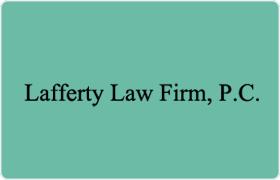Southside Reorganization Lawyer, Tennessee
Sponsored Law Firm
-
 x
x

Click For More Info:
-
Lafferty Law Firm, P.C.
1321 Murfreesboro Pike Suite 521 Nashville, TN 37217» view mapBankruptcy & Debt Over 30 Years Of Experience
Susan S. Lafferty is a CPA and Attorney who enjoys helping people with financial problems. She is located in Nashville, TN where she has lived for over 30 years.
800-936-9071
John Biggs
Labor Law, Insurance, Bankruptcy, Products Liability, Reorganization
Status: In Good Standing Licensed: 13 Years
John Michael Biggs
Labor Law, Insurance, Bankruptcy, Products Liability, Reorganization
Status: In Good Standing Licensed: 13 Years
Michael K. Williamson
Military, Mass Torts, Litigation, Family Law, Reorganization
Status: In Good Standing
Michael Patrick Williamson
Military, Litigation, Family Law, Business, Reorganization
Status: In Good Standing Licensed: 44 Years
Eric Scott Lehman
Trusts, Labor Law, Family Law, Reorganization
Status: In Good Standing Licensed: 9 Years
Joseph Christopher Hall
Administrative Law, Reorganization, Natural Resources, Products Liability
Status: In Good Standing Licensed: 15 Years
Michael Gigandet
Litigation, Insurance, Reorganization, Bankruptcy
Status: In Good Standing Licensed: 40 Years
Michael Gigandet
Litigation, Insurance, Reorganization, Bankruptcy
Status: In Good Standing Licensed: 40 Years
 Susan Lafferty Nashville, TN
Susan Lafferty Nashville, TN Practice AreasExpertise
Practice AreasExpertise
